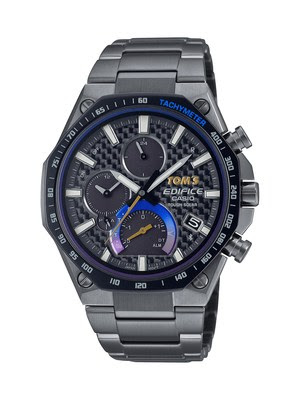The Somali government and a U.S. company are locked in a dispute over the validity of an oil exploration agreement reached in February in Istanbul.
Abdirashid Mohamed Ahmed, Somalia’s minister of petroleum and mineral resources, and Richard Anderson, chief executive officer of Coastline Exploration Ltd., signed the agreement. But in separate statements, Somali President Mohamed Abdullahi Mohamed, known as Farmaajo, and Prime Minister Mohamed Hussein Roble rejected the deal, declaring it “null and void.”
Both leaders cited government decrees and directives banning all ministries and government agencies from signing agreements with foreign governments and organizations until ongoing parliamentary elections are finalized. The elections are expected to conclude next month with the election of a new president.
In addition, the government has instructed Attorney General Suleiman Mohamed Mohamud to investigate the contract and take appropriate legal measures.
The government’s position is that the agreement is in contravention of a presidential decree dated August 7, 2021, and a Council of Ministers directive on December 6, 2018. The mandate of the current legislative and executive branches expired more than a year ago. The government said correct procedures have not been followed; therefore, the agreement is “null and void,” according to a February 21 letter sent by the Foreign Affairs Ministry to Coastline Exploration and obtained by VOA.
Anderson disagrees with the letter and disputes the government’s interpretation of the legality of the agreement.
“I won’t go into the legal details of the analysis, but we believe quite firmly that our PSAs (production-sharing agreements) we signed are legally valid and that they’re in full effect,” he said in an interview.
VOA asked Anderson why the company ignored the Somali president’s decree and a letter from a joint parliamentary committee on natural resources that instruct government agencies not to enter agreements during the election period.
“We did not ignore anything,” Anderson said. “Before we signed the PSAs in February, we consulted with the ministry and with the SPA (Somali Petroleum Authority), and we were assured that both the president and PM were aware of the process and they were fine with the signing.”
He admitted Coastline Exploration did not directly communicate with either the president or the prime minister, but said the minister of petroleum and members of the SPA assured them that both leaders were aware of it. Ahmed, the petroleum minister, refused repeated VOA requests for an interview for this report.
In an interview with VOA in February, Ahmed said the president knew about the signing, but the presidential palace denied his claim.
Agreement details
Providing details of the agreement for the first time, Anderson said it was a “fair deal” for Somalia.
“There is a 5% royalty that comes right off the top. Profit is split 50-50. There is a 30% income tax on whatever profits the contractor — i.e., Coastline — makes,” he said. There are various other financial benefits for Somalia in the agreement, he added.
According to Anderson, all the terms of the PSAs, including the profit-sharing percentage, are fixed for its 30-year term and will not change during the life of the contract.
Somali oil experts criticized the agreement. Jamal Kassim Mursal, former permanent secretary of the Somali Petroleum Ministry, said the agreement was “unfair.”
“A fixed oil royalty rate of 5% and a fixed gas royalty rate of 3%, government share becomes 59.8%,” he said. “However, if prices fall to $70 a barrel, government share stands at 50%. Any price below $70, government loses money to the contractor. Sixty dollars a barrel, government share becomes just 42%.”
Mursal said other key terms such as the discount rate, the R-factor (ratio of cumulative revenues to cumulative costs), the cost recovery ceiling, the exploration period and capital gains determine the overall government take.
“So, we cannot say it’s fair,” Mursal said.
“The fact that all was done in secret itself makes it unfair. Current government term has ended, and the two statements from the office of PM and president stated no government official signs a contract up until new government is installed. So they do not have a mandate to sign such a deal.”
Last year, the Somali government was warned of entering oil agreements by the Financial Governance Committee (FGC), a group of experts comprising the Somali Finance Minister, parliamentarians and a member of the World Bank.
In an advisory, the FGC said it identified two main concerns in the government’s approach to oil and gas contracts: incomplete compliance with the government’s legal framework, and inadequate protection of the state’s financial interests.
“Incomplete compliance significantly raises the risk of future legal and/or compensation claims against FGS (Federal Government of Somalia), while inadequate protection of FGS’s financial interests risks poor value for money over the lifetime of awards that may last for 40 years or more,” said the advisory obtained by VOA. The signed agreement was for 30 years.
The FGC also said no PSAs should be signed until an extractives industries income tax is enacted. No such law has been enacted in Somalia.
Coastline Exploration, founded in 2018, has contractual possession of Soma Oil & Gas, a company that collected seismic data off Somalia’s shore.
Soma Oil & Gas was previously investigated by the United Kingdom’s Serious Fraud Office but was later cleared of wrongdoing because of “insufficient evidence.” Some of the board members of Soma Oil & Gas, including Anderson and Alexander Djaparidze, a Russian billionaire, are board members of Coastline Exploration.
“I want to tell everybody upfront that we are not corrupt. We don’t need to be corrupt,” Anderson said. “No Somali government official has ever asked me to make any kind of illegal payment. It has never happened. I would also like to stress that no Somali politician is a shareholder of Coastline. We are independent of the government.”
He confirmed that Coastline paid for the flights to Istanbul and hotels for members of the Somali delegation, who flew to Turkey to sign the agreement.
“I want to make very clear before we do anything and pay anything that has anything to do with anybody in the government of Somalia, it’s always reviewed by our anti-bribery and corruption council before we make any such payments or any such commitments,” Anderson said.
“This was reviewed by them, and they determined that it was, you know, that it was fine under U.S. law and under Somali law, again out of convenience.”
Anderson said he was confident that the investigation by the Somali attorney general would find that Coastline had complied with Somali law, and that Coastline would be cleared to start work.
Source: Voice of America




